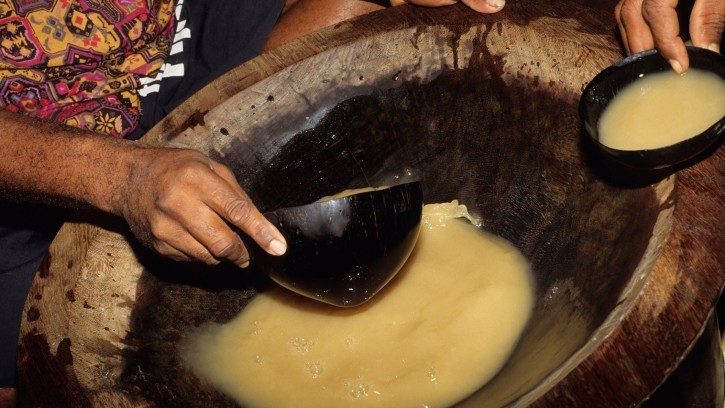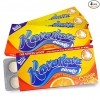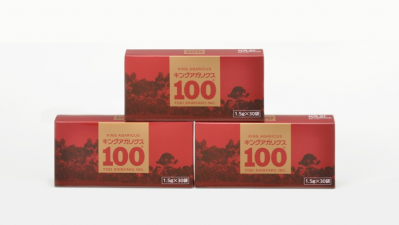ANZ kava food standards limiting ‘innovative, value-added products’ – Kava Korp

In March 2023, after a 12-month review of the amendments, New Zealand announced that it will not adopt Food Standards Australia New Zealand (FSANZ)’s kava standards, and follow its own standards that existed before March 2022.
“At this meeting New Zealand confirmed it will not be adopting the amendments into New Zealand law based on differences between Australia and New Zealand with respect to cultural use of kava and the limited public health concern expressed,” the regulation stated.
While NZ’s standards did not explicit state that manufacturers should use only noble varieties as with FSANZ’s, both standards stipulate kava products to be prepared a certain way.
In both countries, permitted kava products must be “a beverage obtained by the aqueous suspension of kava root using cold water only, and not using any organic solvent; or dried or raw kava root.”
Processing aids and additives are also not permitted in kava for sale.
Kava remains niche
The current kava food standards adopted across Oceania is limiting the appeal of kava to only Pacific islanders diaspora, John Sanday, CEO of Kava manufacturer and distributor Kava Korp, said.
“The limitations imposed by the FSANZ Kava Standards on the preclusion of processing aids and additives to Kava as a food has shut off both the Australian and New Zealander markets to new innovative kava value added products and has limited it only to traditional use for the Islander consumers.”

Some examples of new innovative products would include kava chocolates, chewable mints, and flavoured drinks, but because processing aids and additives are not permitted in kava, kava food products in ANZ are largely limited to powder.
Sanday’s firm had experienced first-hand how a kava chocolate that it had developed was not given the green light by FSANZ.
“What could have potentially been a really good product that increased sales could therefore not proceed. We are continuing to explore all possible avenues. That is just one example”, he said.
Currently, his company runs a boutique kava store in Brisbane, as well as an online store known as Kava Warehouse selling kava powder sourced from different regions, including Samoa, Vanuatu, and Fiji. In New Zealand, the company runs a B2B kava business.
Sanday explained that launching kava in innovative format – beyond powder – was crucial in attracting non-islander consumers. This is because kava, in its traditional form of “brown liquid in a coconut shell,” does not appeal to the palette of the non-Islander market.
“The standards limit the growth of the commercial use of kava for value added products and further downstream processing of Kava to expand the market exponentially.
“As of right now, the market value potential for Kava in Australia and New Zealand will always be limited to the Pacific Islander diaspora. Compared to non-islander market, the Pacific Islander diaspora market is tiny.”
Following the Kava Pilot program implemented in December 2021, Australia has allowed the commercial importation of kava into the country for use as a food.
Since then, Sanday noticed that there has been an influx of kava powder into the country but because of the regulations limiting new product development, much of the consumers are Pacific islander diaspora.
Further growth would need to come from the non-islander consumers, he said.
“As it is, the kava supply in Australia is in a glut and prices have fallen to its equilibrium level.
“The consumption ceiling has been reached and further upward growth in Kava consumption will have to come from outside the non-Islander market and tastes and consumption pattern of this market segment is totally different from that of the Islander. But that is where the growth spurt must come from.
“The non-islander market will take Kava in products that fit into their palette, tastes and product design. Kava prepared and consumed in the traditional way will not appeal,” he emphasised.
He also expressed concerns about the standards’ wording creating negative perceptions around kava being “potentially unsafe” and emphasised the need for more consumer education about kava use.
In terms of the kava industry regulation, he opined that food safety processes and practices should be in place among kava manufacturers and exporters to ensure the longer-term growth of the industry.
NPD as listed medicine
Kava Korp has taken on a different regulatory route to introduce kava in the aforementioned innovative forms into the Australian market.

It is doing so via the Listed Medicine pathway and is pending regulatory approval from the Therapeutic Goods Administration (TGA).
The company is already selling such a product in the US.
If approved, the product would be the first-of-its-kind in Australia.
“Hopefully this will allow us to offer Kava in a form that fitted the Western palette and broaden the consuming market for Kava,” he said.
“It’s a one-off process we got to pay. Once we get approval, we start manufacturing and marketing once the products get onto the shelves. It’s not expensive. The cost of the application is not a disincentive. It’s just a different process, but they all still add up,” he added, about the application with TGA.
He added that kava can be incorporated in juices, milk, and gummies.
Upon a search on the Australian Register of Therapeutic Goods (ARTG), all the approved kava products to-date are either in powder, capsules, and pill formats.
As there is cost involved bringing a product to market, Sanday said that alternatively, kava businesses can educate customers on how to use kava powder.
“The other way we tried to do it is to encourage non-island consumers to buy kava powder with us and do it in their own way. They take it home and mix it in their own way. We cannot mix it ourselves and sell it as a finished product, but they can mix it with whatever they want. So, we’re still trying to educate the non-island consumer market that they can do that.”
Regulation vs. innovation
Sanday said that the growth of the kava bar industry in the United States (US) led to an increasing demand for kava powder and dried roots, which has become an important market for US kava farmers.
He also revealed the impact of Australia’s commercial pilot of kava in 2019 for Pacific Island kava farmers.
Prior to that when kava was still banned, it was still available in the black market but at an exorbitant price of AUD $500/ kg. The price of kava dropped to AUD $120/ kg when the pilot opened supply and the prices reached an equilibrium.
Sanday opined that Australia has the expertise in agricultural science and food manufacturing when it comes to value-adding the kava industry in Oceania.
“It is our hope that the Food Standards will continue to evolve and follow the science and relaxed as the data proves the safety and efficacy of Kava in the population. Currently a lot of science has backed the relative safety of Kava and the growth of the Kava Bar market in the USA since 2001, with no major health scares has shown that it will eventually be relaxed and be more accepted in the Australian and NZ market,” he said.



















